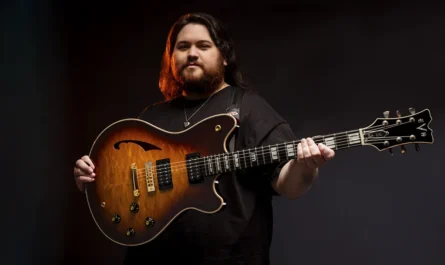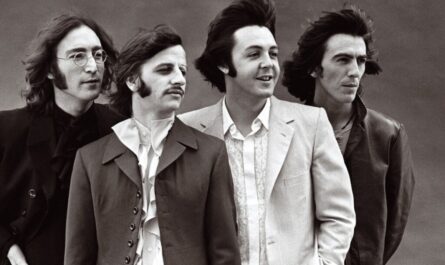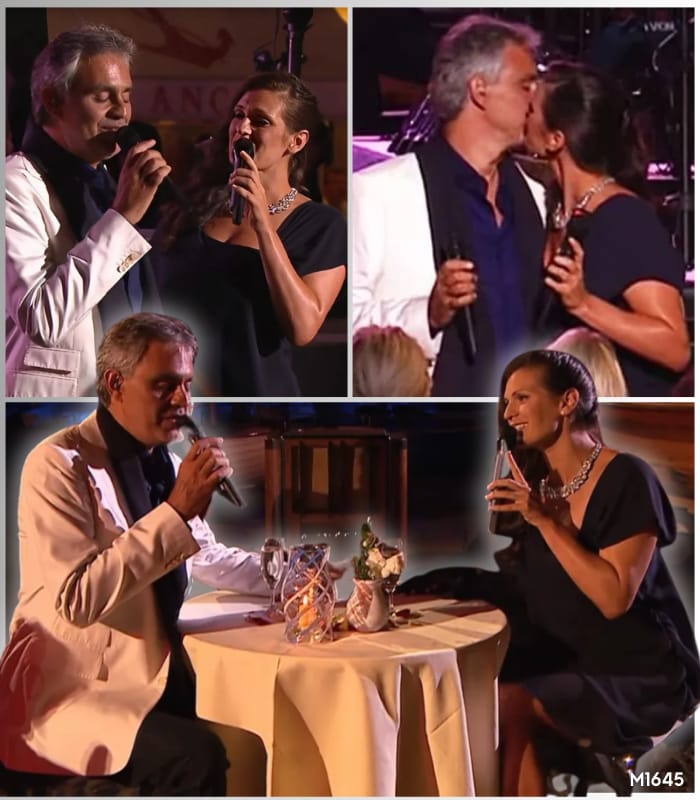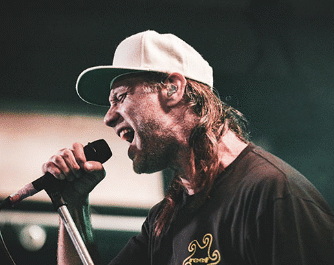‘Tradition’ is a messy term in 2025 – partly one that has been warped and used as a political weapon, and when applied in a musical context, particularly with the word ‘folk’, it tends to bring its own lazy assumptions. For a group like Brògeal, none of those labels come close.
Though some attempt to confine them to the world of traditional folk-rock, Brògeal defies both the cultural trappings and the genre reduction, creating their own sound and identity.
Their debut album, Tuesday Paper Club, may have you questioning that after the opening track, however. The defiant title track opener is a joyous colliding of all their Celtic influences, ready-made to get everyone sharing a glass, arm in arm, singing along to the chorus. It is unashamed in its influence but slight in its narrative approach.
As Daniel Harkins sings about older generations, sitting atop their barstool throne, drunkenly lambasting the forward-thinking generation that precedes them, it’s abundantly clear that this isn’t just warm-hearted pastiche; it is traditional Celtic music repackaged.
The record continues to roll out, and sure, the camaraderie of Scottish folk sensibilities feels recognisable, but they are interwoven with carefully thought-out modern rock arrangements.
“We are just as much inspired by all your rock and roll stuff as we are the traditional stuff. So it was an interesting process being able to make those sounds come out of the traditional instruments, if you know what I mean,” guitarist Aidan Callaghan explained to me when asked about how the different layers of sound unfold through Tuesday Paper Club.

This is a band well aware of the genres in which their music can exist and who are not afraid to embrace them, no matter the outcome.
“There’s a good variety of sounds on the record,” Callaghan added. “We’ve got our kind of thrashy, punky, loud songs that perhaps people would associate with us at this moment in time, but there’s also some kind of poppy stuff and then some really, really slow, chilled-out stuff that we were quite experimental with up on the island when we were recording. So, and that’s on purpose, you know. We want to kind of let people know that we’re not scared to push the boat out and try, you know, a different sound. It’s a statement of intent from us.”
It was on the song ‘Scarlet Red’ where Brògeal felt that sense of experimental freedom present itself strongest. Utilising what was around them in the studio, they could emphasise the sense of DIY camaraderie that exists at the heart of Celtic music, but within expansive arrangements that ultimately allowed the song to take its own course.
“We trust the process,” Callaghan explained, adding that on ‘Scarlet Red’, “the drum kit and that is made out of all the pots and pans in the kitchen. You know, so we were able to kind of just do whatever we, we fancied. That to me is what the traditional scene is all about, and what it was represented historically is kind of bringing people together, and you know, there are sessions that I’ve been to when people are literally playing with the tables and chairs. So it’s not really a crazy thought that we’ve done that stuff.”
So at Brògeal’s very heart is a desire to bring something back in music from a time long since gone. A time when community and escapism walked hand in hand, not in opposite directions. But nostalgia is a tricky line to tread, even for Brògeal, who enter the studio with an open-minded willingness to follow the songs in whatever experimental territory they present.
I sense, in the conversation with Callaghan, that the band deeply understands this. Hell, the lyrics of their opening song seek to challenge the antiquated beholders of the genre they are trying to celebrate, so clearly there is no design to appease traditional purveyors of the scene. Instead, it’s about bringing it further into the future, into a society more divided, and one where its youth seem devoid of community hubs that help foster the sort of camaraderie that runs through the veins of this music.
“I think what we want to do is kind of get people engaged with the traditional kind of folk scene,” he tells me. “And as much as I love it, I understand why people might find it a bit naff. But there’s loads and loads of good, amazing traditional stuff out there. So we think if we can bridge the gap between the mainstream and the traditional, then people may want to look into it more. Have a look at the roots and stuff, you know?”
But Callaghan is acutely aware of music’s role in being a force for good. In an age where simple ideas are being co-opted by fascists to support whatever heinous narrative they’re peddling, there is an underlying awareness that Brògeal’s celebration of traditional Celtic music could be misunderstood.

Brògeal could quite easily become the unintentional soundtrack to a nationalist movement, but if they were, it would be entirely against the point of the band and the point of their music. ‘Camaraderie’ is a word I’ve revisited throughout this article, because it was a word that was revisited regularly in my conversation with Callaghan.
A word that felt like a lynchpin to the mission statement of this band and their music, yet didn’t mean camaraderie in the secular sense. It meant to them an all-encompassing invitation for people to enjoy their music in the face of systemic division. Because after all, that’s exactly where this music was born from.
“I’ve kind of been thinking about what that means recently, all this weird, kind of right-wing thing that’s going on now, where people are using nationalist symbols in a very negative way, in my opinion,” he says. “But to us, we want to promote our culture and our heritage in a very positive way, in a way that brings people together and gets people to engage with us as much as we’re engaging with them.”
The societal backdrop clearly weighs heavy on Callaghan as he continues. “I’m just really, really concerned by all this shit that’s going on now.”
“So, you know, we’re always going to stand up against that and kind of walk this line of doing it right, you know? I think it can be the most unifying thing ever. Because it’s playing music, it’s having a laugh. And what it is, it’s our stories on this record. Every single bit of it means something to us. And that’s what we’re trying to show. We’re just regular wee guys from Scotland. It’s a wee town. We do the same kind of shit that everybody does in Scotland, or in England, or anywhere really. We’re just under the fucking boot like everyone else.”
Now, with their debut album released to the world, Brògeal have been granted a little bit of space from underneath the boot. Not yet basking in the sunshine, but seeing the light at the end of the tunnel, they are determined not to let this opportunity slip. But is that opportunity one of commercial success by any means? No, anything but. Instead, it’s an opportunity to reclaim the narrative and drive camaraderie back into the heart of modern music.





